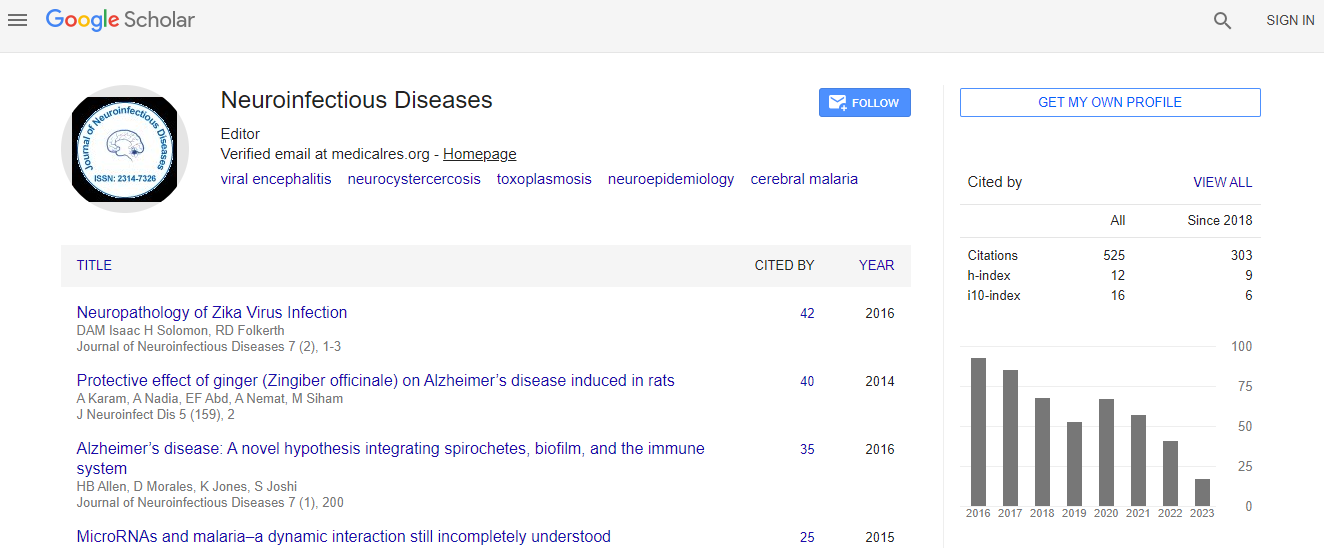Review Article
Neurologic Manifestations of Leishmania spp. Infection
Christine Anne Petersen1,2*, and M. Heather West Greenlee3
1Immunobiology Program, College of Veterinary Medicine, Iowa State University, Ames, IA 50011, USA
2Department of Veterinary Pathology, College of Veterinary Medicine, Iowa State University, 1600 University Boulevard, Ames, IA 50011, USA
3Department of Biomedical Sciences, College of Veterinary Medicine, Iowa State University, Ames, IA 50011, USA
- *Corresponding Author:
- Christine Anne Petersen
Immunobiology Program, College of Veterinary Medicine
Iowa State University, Ames, IA 50011, USA
E-mail: kalicat@iastate.edu
Received Date: 1 April 2011; Revised Date: 7 April 2011; Accepted Date: 9 April 2011
Abstract
When listing common clinical signs of the spectra of Leishmania-derived diseases, neurologic malfunctions are not commonly included. Despite this, there are multiple reported instances both in human and veterinary medicine where neurologic manifestations, whether central or peripheral, are described. In this review, we describe neurologic manifestations seen during infection with Leishmania spp. with some discussion of the implicit effect of inflammation on the blood brain barrier in both medical and veterinary cases. Taken together, the material discussed here suggests that in patients from Leishmania-endemic areas, when observing neurologic symptoms, causation secondary to infection with Leishmania spp. should be highly considered.

 Spanish
Spanish  Chinese
Chinese  Russian
Russian  German
German  French
French  Japanese
Japanese  Portuguese
Portuguese  Hindi
Hindi 
